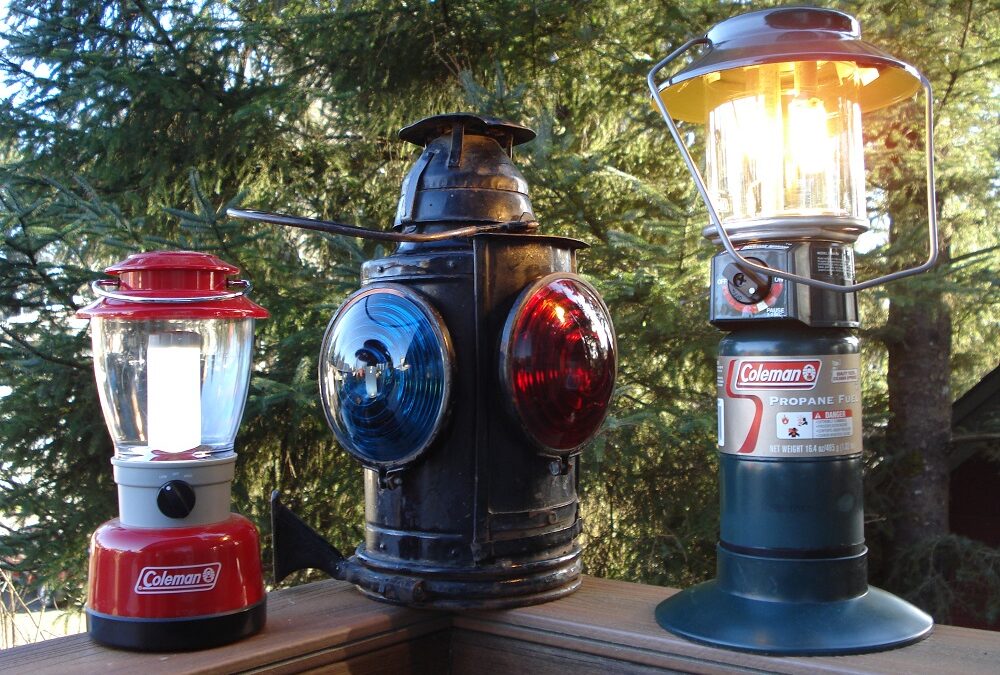
by wp-admin | Dec 9, 2021 | Exploring the Mental Fitness Formula
 When I was fourteen I decided to make a mosaic out of the stones I’d collected from the Lake Michigan beach near us. My dad took me to the lumber yard to get Elmer’s Glue and a handy-panel and I began sorting them on the back patio. I drew a rough design and spent hours for several days creating this rambling picture that may somehow capture who I was then.
When I was fourteen I decided to make a mosaic out of the stones I’d collected from the Lake Michigan beach near us. My dad took me to the lumber yard to get Elmer’s Glue and a handy-panel and I began sorting them on the back patio. I drew a rough design and spent hours for several days creating this rambling picture that may somehow capture who I was then.
To this day I use a similar crafting method, but now I can use the FORMULA concepts and Eric Berne’s intuitive approach to help me. Together they allow me to sort out my interior reactions along with my pebbles. I offer this example to illustrate how your Parent-Child dynamic operates in a simple situation before you encounter more complex ones in the following posts.
To make a mosaic my Adult and Child first prepare the materials and decide on the size and shape of the project. Then my Adult directs me to:
- Collect all the stones needed for the design.
- Sort them into piles of similar types and choose which to use.
- Design each section in detail and set the stones, trying different arrangements until the whole picture comes together.
- Keep my Critical Parent from ruining the experience by telling me to worry about other tasks and my Indulgent Parent from letting me craft so long that I neglect those.
- Balance my Child’s needs for fun and rest with the need to work on the project for many hours.
The Mental Fitness FORMULA can help you manage a process like this well. Your Adult plans and designs things with input from your sensing and feeling Child. Your Parent parts express their view, and their beliefs. My Critical Parent may tell me I’m wasting my time (Belief #3, you’re failing to meet a standard you’ve set). In recent years when I saw the amazing mosaics on Pinterest, my Critical Parent suggested that I must equal or surpass their skill or it would be stupid to continue (Belief #2 ). If my Child wants to keep playing when I need to stop and do chores, my Indulgent Parent may take its side. Citing Belief #11, it could suggest that I’m special because I usually work hard and so it’s okay to neglect things to have fun. Kept on the edge of fight-or-flight, my Child can be left confused and conflicted about enjoying the “fun” project. Full disclosure, I don’t make a mosaic very often.
My Adult must balance all three of these inner voices and guide me to take the best course for the short- and long-run. I often feel tension in my gut when I take very long at anything for simple pleasure. The FORMULA only takes me so far in the short run. I’m wired to be more anxious generally, as a person in the group Elaine Aron calls “Highly Sensitive.*” I also inherited a family trait of impulsive intensity that often gets me committed in too many directions.
My toxic experience as a child instilled a drive to help others not endure what my family had to suffer. My Adult has consistently chosen to support a Critical Parent that will keep me on track for this. I always know I could choose differently, but my purpose-driven life in the long-run brings me joy and satisfaction. We all differ in what tempts our Child to push us too far at times or sometimes leaves our Child neglected. The discipline of Mental Fitness can help you manage and benefit from whatever inheritance and formative experience you bring to your life.
When I keep the FORMULA in mind, my Adult helps me stay more relaxed and healthy in simple, low-stress situations like crafting a mosaic. Consistent practice has prepared me to engage effectively and more comfortably in more demanding and potentially triggering situations. The process remains the same, but following my purpose, the triggers involve the Critical and Indulgent Parents of others which can drag in my own. For example, my Child gets upset when someone is unfair to me or anyone else and prods me to say or do something. My two Parents often disagree about the best response. Through all this my Adult must quickly guide me to respond to others with consideration for what their Parent and Child reactions might be.
Your Adult has to be skilled and quick to deal with your inner world or it won’t navigate others’ behavior well. Like driving a car in fast, heavy traffic, you need the smoothly functioning automatic reactions that only occur when you’ve gotten lots of practice on easier roads first. Gradually your skills will grow and you’ll find that you actually enjoy the challenge of more complex situations, once you trust that you can handle them well.
*Elaine Aron, hsperson.com

by wp-admin | Dec 9, 2021 | Exploring the Mental Fitness Formula
This picture shows that somebody wanted to create a unique statement at the beach. He or she thought about what to sculpt and carefully formed this octopus of damp sand. To make it more visible, the sculptor laid out seaweed to contrast with its arms. Now we can readily see this remarkable design. Social skills like assertiveness also require this kind of focus, caring and creative problem-solving. You just can’t fill a bucket with sand and dump it out. Your Adult needs to set goals, study what they’ll require and then work with your Child and Parent parts to develop and express your new skills.
In the early 1970s when I was in graduate school at the University of Iowa, the Women’s Movement rolled through. I sewed curtains for the new women’s center and then helped develop assertion training groups. These groups began because it was felt that, due to being treated as “less than” men, women lacked the skills and attitudes they needed to succeed in their work and enjoy healthy relationships.
You must be assertive to be mentally fit. Whether you’re a man or woman, you must be assertive to experience the social confidence and self-respect mental fitness brings. If not, others won’t fully open up to you because they can tell you’re not really open with them. Do you make a sarcastic joke at their expense? Do you pretend to be happy with them and then blow up occasionally? Do you vent your hurt and anger to others, thinking your comments won’t get back to the person you were afraid to confront? Do you usually withdraw and avoid real friendship because it’s just too hurtful and disappointing? In Claim Your Own Mental Fitness, Chapter 1, Part III, Friendship Holds the Keys, I describe in detail how being assertive opens the door for you to enjoy trust and harmony in your relationships.
As the sand sculptor formed the octopus, you can create within you the skills to be assertive. Using the FORMULA, your Adult must tune in to your Child’s anxiety and, with your Wise Parent, convince your Child that it does not need to go into fight-or-flight if another person gets angry or even dumps you. Because early human survival depended on social cooperation, social rejection became a trigger for fight-or-flight. The first time I decided to confront a person I really depended on for friendship (at about age thirty-one), I felt nauseous, my heart raced and my brain felt like spaghetti.
Here’s how I prepared myself. First, I re-read sections of Manuel Smith’s book, When I Say No, I Feel Guilty, where his students offer dialogue examples of how to talk assertively, not aggressively. I practiced what I could say in several variations of how the conversation might go. Once I had that down, my Adult worked on my toxic beliefs. (#1) No, I don’t need this friend’s approval or even her friendship, I just want it, my body can stay out of it.(#3) This friend is kind and fair-minded, she probably won’t blame or punish me for asking her to respond to my concern. (#9) No, it’s not more comfortable to avoid this conversation and keep getting privately upset with her. Finally, it’s not a black-and-white, either-or thing, that she’ll either be fine with this or reject me totally. Just because I’m uncertain and anxious doesn’t mean I can’t take this non-life-threatening risk to improve our friendship.
It was still very scary for me to gently open the topic I needed to discuss, and my body was still in take-off mode. My friend and I easily came to an understanding and I was launched on my assertive path. Consider the things you already care for thoughtfully: your home, your appearance, your crafts, your family, your career skills. This same kind of attention and persistence will also bring you the assertiveness you need to be mentally fit and the deeply rewarding relationships it makes possible.

by wp-admin | Dec 9, 2021 | Exploring the Mental Fitness Formula
When you see what’s wrong and you try to make it right, you will be a point of light. Randy Travis
This line from Randy Travis always brings me to tears. But wishing don’t make it so. First you must construct a lantern for your candle. This spark of inspiration and faith in yourself, like all fire, needs containment and guidance to become Travis’ point of light. Mrs. Fixit would say that the candle represents the unique set of skills and talents you have to fuel this light and your Adult must experiment with how to keep it burning. The glass in a lantern protects your inspiration from the wind and rain along your journey, and allows it to keep lighting your way. The metal housing gives your candle a firm base to keep it steady and an access point for recharging your fuel. The handle allows you to hold it up where you need its luminance. You’ll construct your own unique lanterns as you go.
To claim your own mental fitness, you must have a grasp of just what you need to navigate in your life. The system I’ve been describing in this blog and in Claim Your Own Mental Fitness offers the means to construct this for yourself. Here’s a review of the key elements:
- Child: the energy, talents and interests that constitute the raw material for your candle
- Indulgent Parent: the unfettered permission to explore and express Child impulses in potentially scented and malleable wax-like form
- Critical Parent: the limiting and shaping instrument that forms your candle
- Wise Parent: balances these two, allowing a well-shaped and sturdy candle that’s not too brittle or too soft
- Adult: monitors these as you go through your days, adjusting each and creating your Wise Parent as it revises the Toxic Beliefs of your Indulgent and Critical Parents. It trims your wick just right and makes sure your candle is ready for your journey into relationships and managing your daily life.
The skills your Adult needs to provide this guiding influence are contained in the FORMULA. Remember, it must Focus inward upon your Child and Parent parts, Observe what Toxic Beliefs might be triggering fight-or-flight and Revise these to calm your system and make the new versions available in your Wise Parent. Then your Adult must Monitor for any needed adjustments, continually Using your Child’s body-linked feedback that fight-or-flight has begun. Next your Adult must support your Child’s feelings of hope, confidence and strength by Lightening its day with fun, inspiring, healing and energizing experiences. This keeps your light shining brightly. Finally Your Adult must learn how to Apply this system when you interact with other people and when life stresses you in new ways that threaten to take you into overwhelming emotional darkness.
Three-year-olds don’t design lanterns. With their immature pre-frontal cortexes, they can’t monitor well or study how other people have found ways to become steady points of light. Gradually we develop the mental ability to do this, but we often get very poor guidance for how to build effective lanterns as we go through life. Expect to work hard for mental fitness. Even when you know how to work with your different mind aspects and practice the FORMULA, it’s still very hard to keep a steady march with your point of light through all the stressors you encounter.
Once you have your lantern, how can you “see what’s wrong and try to make it right?” Your Adult must be like Syd Mead’s robot “Number Five” in the 1986 film Short Circuit, open to and hungry for INPUT. Humans through all our history have struggled with the same issues facing you. They’ve written about what’s helped them, often brilliantly. Nowadays movies and other videos offer new avenues for study. To keep your Adult functioning well you must keep practicing the FORMULA and also become a life-long learner about mental fitness.
Study the Wise Parent guidance of others you respect to decide what you believe is right or wrong. Don’t be too proud or too lazy to explore what they have to offer if you want mental fitness. Your steady light can lead others to light their own candles and see what’s wrong, then try to make it right.

by wp-admin | Jan 3, 2016 | Exploring the Mental Fitness Formula


In post 16, “Brain Differences and Fight-or-Flight,” I discussed how some people, whose wiring is significantly different from average, struggle harder to keep their Adult in charge. Now I’d like to describe how we, who are troubled by our differences, must resolve our grief over them to stabilize our Adult long-term. We must fortify our Wise Parent to be even stronger than average to avoid damaging shame, anger, anxiety and depression. We need to find within and outside ourselves sheltering branches, like those in the rock family picture, to comfort us as we try to cope. I’ll use my journey with this as a Highly Sensitive Person (HSP) to illustrate.
I knew I had to work harder by age ten because of my social anxiety and awkwardness. I also disliked how I could get easily annoyed by small things and very upset over any teasing. By age twelve I was studying Benjamin Franklin’s diary, where he tracked about a dozen behaviors for self-improvement. He noted that, as his score improved in the other areas, his humility score decreased. After reading Dale Carnegie’s How to win Friends and Influence People, I kept notes daily on how well I listened to others and refrained from sharing much about myself. I remained very closed off, except with one or two friends, until I went to college. I’ve seen many HSP clients who never tried again to engage with groups socially after junior high. (See hsperson.com with Elaine Aron.)
Until my first marriage failed at age 27, I didn’t have much non-work social contact due to my need to study hard in college and work many hours a day after that. At that point I received an assistantship for my Ph.D. program in Counseling Psychology. Over-reacting to my divorce, I was wracked with relentless insomnia and panic attacks. I grabbed every idea from my course work that I could about how to heal myself, for my own survival and so I could be a good mother to my two-year-old son. I didn’t accept the valium I was offered. The horrible panic attacks proved a gift for my healing and my ability to help others. I practiced the cognitive therapy and intense self-observation I learned in my classes day and night. I discovered exactly what self-talk and circumstances would set off or shut down a panic attack, and got over them in five years. The insomnia persists whenever I take on too much in my life or let even a minor social interaction disturb me. I still resent that.
I discovered that saying punishing things to myself out of frustration with my HSP wiring (now identified as sensory processing sensitivity) only provoked more anger, anxiety and panic. I learned to be gentle with my Child just to stay out of fight-or-flight. I realized this positive approach, and not the negative confrontations popular then, would also be most helpful to clients. I had to revise especially my Critical Parent’s toxic beliefs to sustain this approach and build a strong Wise Parent. To do this on a stable basis, I had to complete my grief process over the HSP brain I was dealt, long before the HSP trait was identified. I knew I wasn’t just suffering from the divorce trauma; I’d always been too anxious and hyper-sensitive. Denial, anger, and sadness over how I was different all had to be fully processed for me to reach self-acceptance.
Of course, many others have brain differences which cause them much more pain and limit them worse than being an HSP. But somehow they must also find a way to accept themselves in order to enjoy the gifts they do have, especially when others judge and blame them. Temple Grandin has done a heroic job of this with autism, but we can’t all manage that. If we just grow our Wise Parent’s sheltering branch inside and find the environment that supports us, we can each thrive in our own way. Compared to those with schizophrenia, severe bipolar disorder or other major impairments to their Adult functioning, my struggles are nothing.
It’s crucial that individuals and society stop indulging their biases against people who are mentally different in crippling ways. Worldwide mental health services are poorly funded and inadequate. It’s not true that everyone is born and raised to be equally capable of managing life. It’s the worst expression of our primitive human nature to shun them and leave them to suffer. We don’t have to do that to survive like our distant ancestors may have. These people deserve the deepest compassion and steadiest, wisest support from us fellow humans to help them be kind to themselves while they search for ways to join in.

 When I was fourteen I decided to make a mosaic out of the stones I’d collected from the Lake Michigan beach near us. My dad took me to the lumber yard to get Elmer’s Glue and a handy-panel and I began sorting them on the back patio. I drew a rough design and spent hours for several days creating this rambling picture that may somehow capture who I was then.
When I was fourteen I decided to make a mosaic out of the stones I’d collected from the Lake Michigan beach near us. My dad took me to the lumber yard to get Elmer’s Glue and a handy-panel and I began sorting them on the back patio. I drew a rough design and spent hours for several days creating this rambling picture that may somehow capture who I was then.




